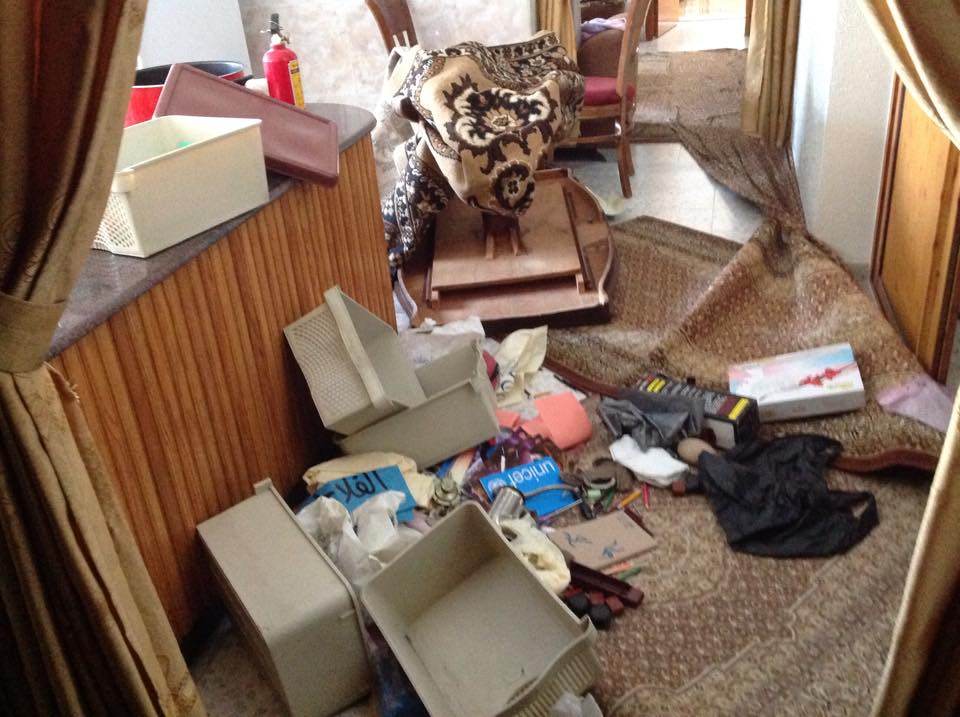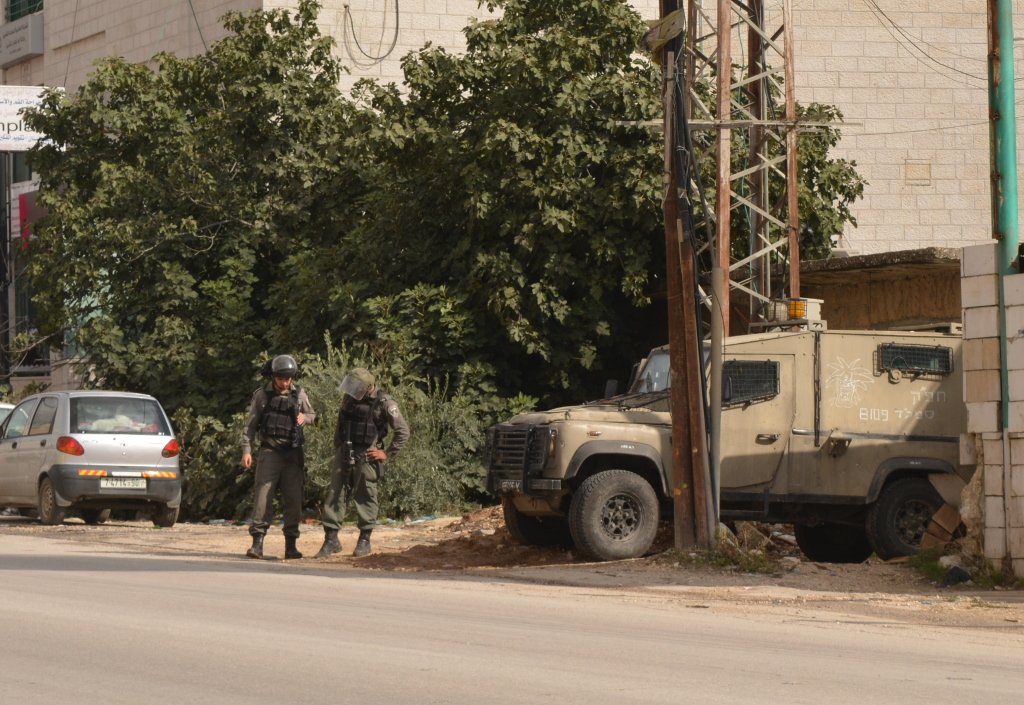Tag: House raid
-
“If you don’t open the door in 5 minutes, we will blow it up”
24th February 2015 | International Solidarity Movement, Khalil Team | Hebron, Occupied Palestine During the night of the February 22nd, Israeli occupation forces raided two homes belonging to the Edies family, in the Al-Khalil (Hebron) neighbourhood of Tel Rumeida. At least thirty soldiers invaded the homes of Yahya Edies and Saleh Edies at around 2:30 am on Sunday morning.…
-
Military places curfew on Huwwara village, arrests two young men, and raids Palestinian homes
5th November 2014 | International Solidarity Movement, Nablus Team | Huwwara, Occupied Palestine On Friday the 31st of October, approximately 300 Israeli soldiers invaded the village of Huwwara, near Nablus. They fired tear gas canisters and stun grenades, seemingly in attempt to clear the streets of people, and declared the village to be a closed military…
-
The arrest of Burin activist Ghassan Najjar
10th September 2014 | International Solidarity Movement, Nablus team | Burin, Occupied Palestine The prominent activist from the West Bank village of Burin, and member of Solidarity Movement for Free Palestine, Ghassan Najjar, was taken by the Israeli army from his home in the early hours of the morning on the 27th August. He was transferred to…



